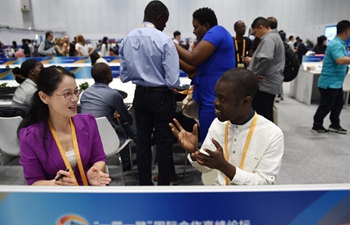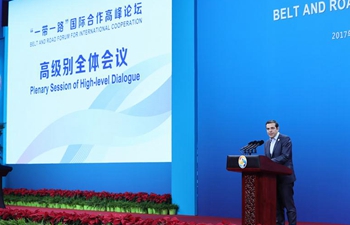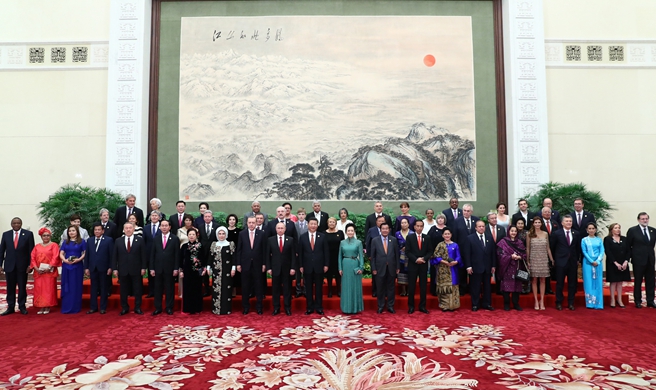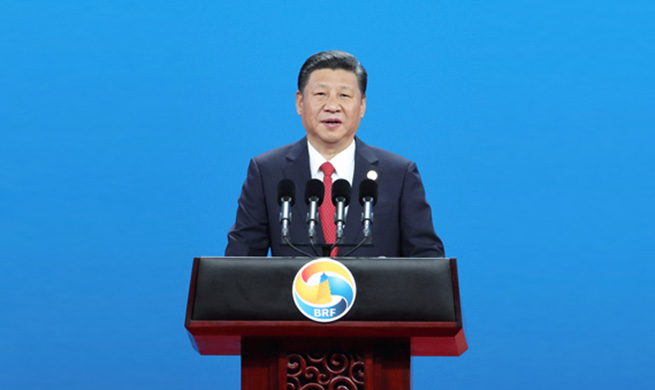By Gerardo Laborde
MONTEVIDEO, May 14 (Xinhua) -- Uruguay this month is celebrating the 10th anniversary of a national program that has made Internet available to the masses by providing all elementary school students with a laptop.
The national program, called Plan Ceibal, in conjunction with the global nonprofit initiative called One Laptop Per Child (OLPC), made Uruguay "the first country in the world to provide one laptop to every primary school student," according to OLPC's website.
"I must admit that, at the beginning, I never imagined a plan so complete and well executed," OLPC's founder, the U.S.-born Nicholas Negroponte, said during a visit to Montevideo this week.
Negroponte, who is also the founder of MIT's Media Lab, said one of the factors that helped to make the plan a resounding success in Uruguay was President Tabare Vazquez, who was serving his first term (2005-2010) when the plan was first adopted.
Vazquez was adamant about the scope of the program, insisting it should cover every child, according to the state Uruguayan News Agency (UyPress).
"Nobody else did that. That is extraordinary," said Negroponte.
In announcing the plan in December 2006, Vazquez said that as of 2007 "the fundamental school supply our children are going to have is going to be this computer."
The first green-and-white laptops, which cost 100 U.S. dollars to make, were distributed in May 2007 at a school in the small town of Villa Cardal, in the southern department of Florida, home to just 500 inhabitants. But soon schoolchildren throughout the country had a "ceibalita," as the laptops were called.
The first three students to get a laptop were Micaela Rodriguez, Rocio Martinez and German Arrua, today aged 17, 18 and 19, respectively.
All three agree the laptop marked a turning point in their educational life.
"They came to be used for all the day's work," Rodriguez told national radio network Radiodifusion Nacional del Uruguay (RNU).
"With a computer, we could find out about many things that we didn't know existed in Uruguay," she added.
Martinez agreed, saying the Plan Ceibal, a Spanish backronym that stands for Basic Informatic Educative Connectivity for Online Learning, "was a great help" for studying.
Arrua, meanwhile, recalled using his laptop to take pictures.
The president of Plan Ceibal, Miguel Brechner, said prior to the initiative, "only 9 percent of children from the poorest households had access to a computer. Today, more than 90 percent of that population does."
Thanks to its effectiveness, Plan Ceibal was expanded to secondary school students and since 2016 is being used to teach the elderly.
According to Negroponte, two other factors helped make the program a success in Uruguay, including developing the needed infrastructure, which state telecom Antel was tasked with doing.
The third factor was the country's belief in the advantages of promoting equality, he said.
"Due to these three things: Vazquez, equality and the telecommunications, this project turned into what it is. And it helped us in many aspects, and that's why I want many other countries to copy this experience," Negroponte said.
Uruguay "has become the byword" for progressive educational programs, he said, predicting that "in 20 years, Uruguay will be producing the world's most creative people."

















